第60章
Once when some one was in a fury of indignation because he had bidden a passer-by good-day and the salutation was not returned, Socrates said: "It is enough to make one laugh! If you met a man in a wretched condition of body, you would not fall into a rage; but because you stumble upon a poor soul somewhat boorishly disposed, you feel annoyed."To the remark of another who complained that he did not take his foot with pleasure, he said: "Acumenus has a good prescription for that." And when the other asked: "And what may that be?" "To stop eating," he said. "On the score of pleasure, economy, and health, total abstinence has much in its favour."
A well-known physician. See Plat. "Phaedr." 227 A, 269 A; "Symp." 176 B. A similar story is told of Dr. Abernethy, I think.
Lit. "he would live a happier, thriftier, and healthier life, if he stopped eating."And when some one else lamented that "the drinking-water in his house was hot," he replied: "Then when you want a warm bath you will not have to wait."The Other. But for bathing purposes it is cold.
Soc. Do you find that your domestics seem to mind drinking it or washing in it?
The Other. Quite the reverse; it is a constant marvel to me how contentedly they use it for either purpose.
Soc. Which is hotter to the taste--the water in your house or the hotspring in the temple of Asclepius?
In the Hieron at Epidauros probably. See Baedeker, "Greece," p. 240 foll.
The Other. The water in the temple of Asclepius.
Soc. And which is colder for bathing--yours or the cold spring in the cave of Amphiaraus?
Possibly at Oropos. Cf. Paus. i. 34. 3.
The Other. The water in the cave of Amphiaraus.
Soc. Then please to observe: if you do not take care, they will set you down as harder to please than a domestic servant or an invalid.
i.e. "the least and the most fastidious of men."A man had administered a severe whipping to the slave in attendance on him, and when Socrates asked: "Why he was so wroth with his own serving-man?" excused himself on the ground that "the fellow was a lazy, gourmandising, good-for-nothing dolt--fonder of money than of work." To which Socrates: "Did it ever strike you to consider which of the two in that case the more deserves a whipping--the master or the man?"When some one was apprehending the journey to Olympia, "Why are you afraid of the long distance?" he asked. "Here at home you spend nearly all your day in taking walks. Well, on your road to Olympia you will take a walk and breakfast, and then you will take another walk and dine, and go to bed. Do you not see, if you take and tack together five or six days' length of walks, and stretch them out in one long line, it will soon reach from Athens to Olympia? I would recommend you, however, to set off a day too soon rather than a day too late. To be forced to lengthen the day's journey beyond a reasonable amount may well be a nuisance; but to take one day's journey beyond what is necessary is pure relaxation. Make haste to start, I say, and not while on the road."
{peripateis}, "promenading up and down." "Festina lente"--that is your motto.
When some one else remarked "he was utterly prostrated after a long journey," Socrates asked him: "Had he had any baggage to carry?""Not I," replied the complainer; "only my cloak."Soc. Were you travelling alone, or was your man-servant with you? He. Yes, I had my man.
Soc. Empty-handed, or had he something to carry? He. Of course; carrying my rugs and other baggage. Soc. And how did he come off on the journey?
He. Better than I did myself, I take it.
Soc. Well, but now suppose you had had to carry his baggage, what would your condition have been like?
He. Sorry enough, I can tell you; or rather, I could not have carried it at all.
Soc. What a confession! Fancy being capable of so much less toil than a poor slave boy! Does that sound like the perfection of athletic training?